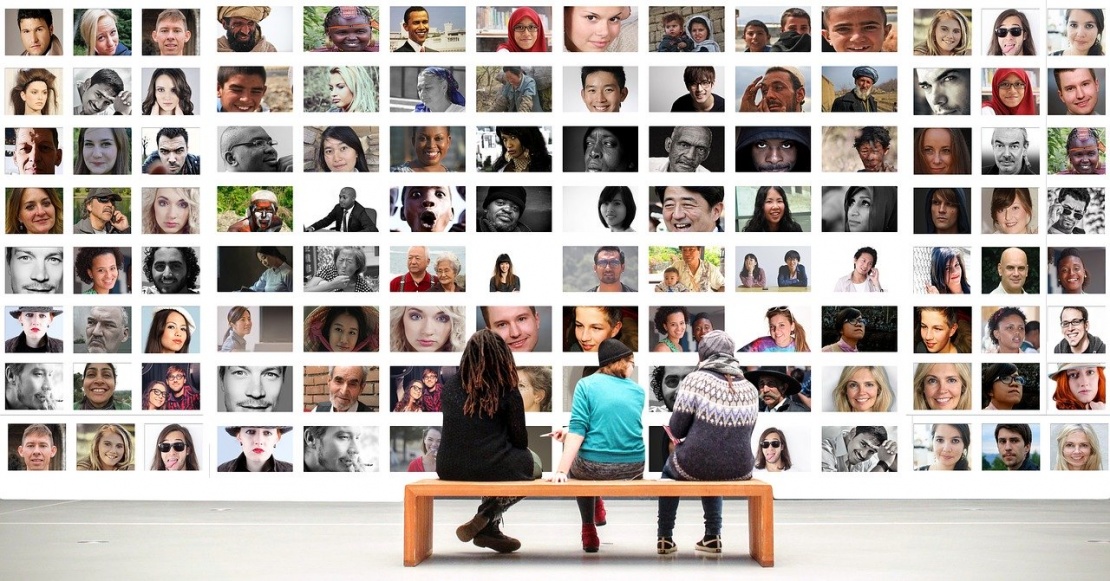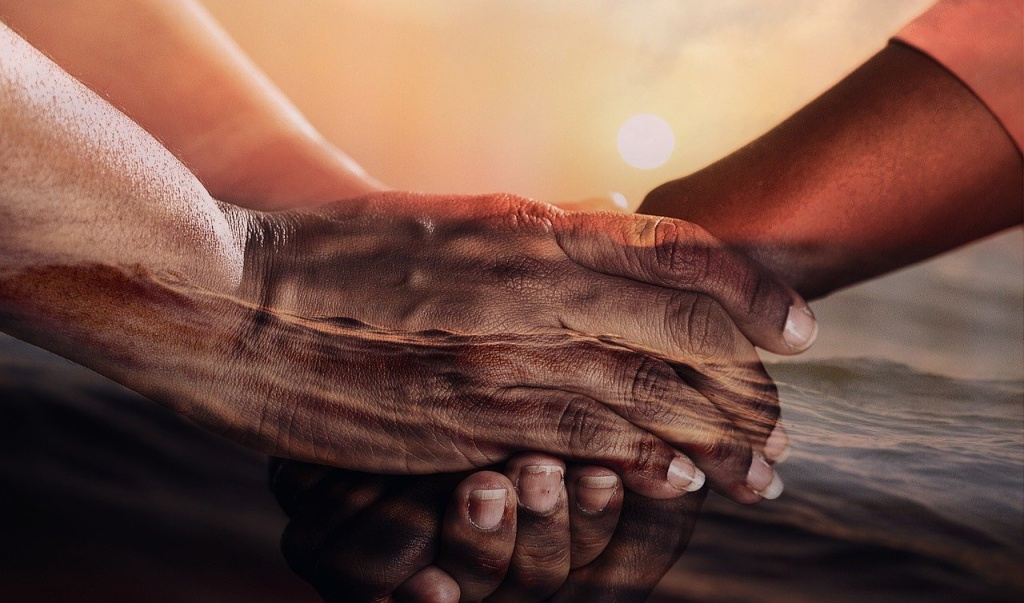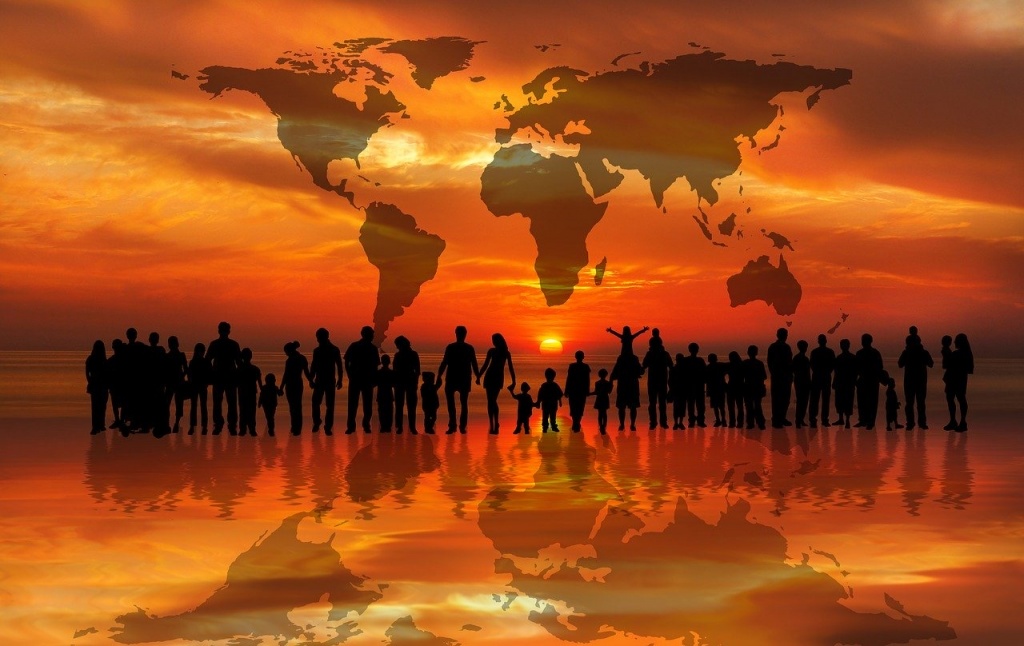
Today is a celebration for all homo sapiens. Congratulations to all of you on World Population Day!
World Population Day was adopted on 11 July 1989 by the Governing Council of the United Nations Development Program. The date was not chosen randomly. On 11 July 1987, the population of the Earth reached 5 billion people. By 2011, the number of people increased by another 2 billion.
According to the UN, by 2050, the world's population should be more than 9 billion inhabitants, 7.8 billion of which will live in developing countries (there are currently 5.3 billion). Such a significant and continuously growing number is both a threat and an opportunity. Which bowl scale outweighs depends on our actions.
If global problems seemed too distant earlier, the events of 2020 convinced us of the opposite.

The main event of 2020 was the pandemic of the new coronavirus infection COVID-19
Initially, the virus was perceived as a local problem in China. However, the coronavirus has infected almost the entire world within a few months. It became apparent that a pandemic can be overcome only by joining forces of the whole world. Countries that have been successfully treating the virus and preventing it from spreading help other countries struggle against COVID-19. For example, the PRC, having overcome the pandemic, sent medical supplies to Iran, Pakistan, Laos, Thailand, Japan, South Korea, and the countries of the African Union. The PRC also expressed gratitude to all the countries that helped to stop the epidemic in China. This fact confirms the truth that a global approach is necessary to cope with global problems.
The United Nations Population Fund (UNFPA) has also paid attention to the difficulties that vulnerable groups of the population inevitably have been facing during self-isolation. Quarantine measures and the crisis in countries exacerbated problems such as unemployment and domestic violence.
Typically, the worst consequences of the COVID-19 pandemic are women, children, and people with disabilities. This fact was reaffirmed by the Secretary-General of the United Nations, António Guterres, in a recent appeal "A Call for a Global Ceasefire." The head of the UN emphasized that coronavirus infection is our common enemy, not distinguishing between ethnicity, political or religious beliefs.

Another event that happened in 2020 and reaffirmed the need for world unity was the anti-racism protests in Minneapolis (USA).
In many US cities, thousands of people marched to protest against the brutal murder of African American George Floyd. The rally took place on 29 May, not only in Minneapolis, where the tragedy occurred, but also in New York, Los Angeles, Houston, Las Vegas, and other places. People of various races took part in the protests. Only the involvement of all people can help in the struggle for human rights. Every vote is meaningful. From now on, there are no other people's problems. We are all responsible for what is happening on Earth.
WE ALL CONSTITUTE A BIG FAMILY, which means we must solve problems together

The number of natural disasters associated with climate change has doubled since the beginning of the 90s of the last century. Extreme heat, drought, floods, and storms bring significant damage to agriculture now. Crops of essential crops such as wheat, rice and corn are markedly reduced.
Now imagine that there will be two billion more people on the planet in around 30 years, and everyone needs food, water, and shelter. Besides, due to climate change, it is not easy to satisfy the basic needs of people even now.
Accelerated population growth is especially characteristic of developing countries. Africa is considered the most prone region to overpopulation; it is estimated that the continent will grow two to three times by 2050. This growth will lead to a significant increase in demand for food, water, and energy.
To illustrate the link between climate change and food insecurity, the UN World Food Program, along with the UK office, has developed an interactive map that you can see here. The interactive map enables you to independently track the level of food security in different regions of the world.
Unfortunately, according to the UN, by 2030, many regions of the world will experience an acute shortage of resources. Therefore, it is imperative to take action now.

What can I do against climate change?
There are many options.
The simplest daily habits can facilitate the preservation of our planet. You can:
World Population Day aims to draw attention to population issues, development programs, and the search for solutions to common problems. Each year, the holiday is dedicated to a particular topic. So, in different years, the motto of World Population Day was: "Equality gives strength," "Everyone is meaningful," "Investing in youth," "Vulnerable groups of population during emergencies," and others.
In my opinion, the appropriate motto for this year's holiday could be "It's time to unite and save the Earth."
____________
![]()